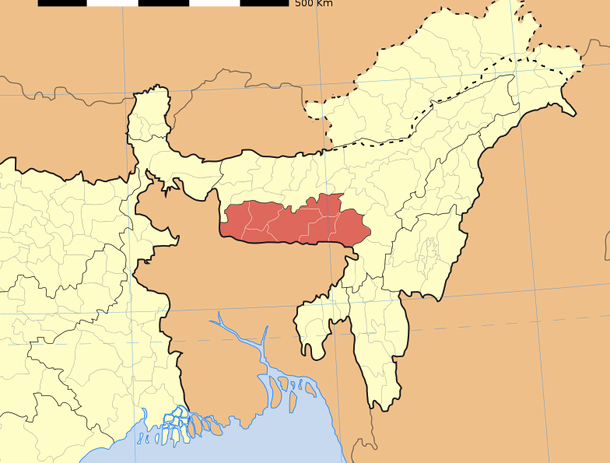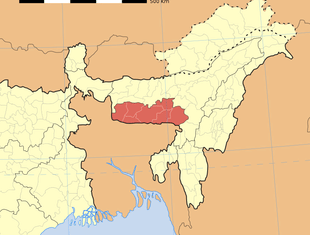Columns
When Celebrating Independence Day In Shillong Was An Act Of Defiance
Paulami DuttaGupta
Aug 15, 2015, 12:15 PM | Updated Feb 12, 2016, 05:22 PM IST
Save & read from anywhere!
Bookmark stories for easy access on any device or the Swarajya app.


While for some Indians celebrating Independence Day would have become a ritual without meaning, there are others for whom, up until recently, it was an act of sheer defiance.
Shillong is a melting pot of cultures and ethnic groups settled happily where— even after it being a Christian-majority town—Durga Puja, Holi, Eid and Diwali are celebrated with equal fervor. Being the rock-music capital of the nation, the city also has musicals in dozens and also boasts of competitive national-level football teams.
However, amidst all this, Shillong also has deep scars from the past .
What started as an issue of divide between tribal and non-tribal settlers, identity and growing corruption went, on to take a dangerous shape. By mid-Nineties, an insurgency crept in with the emergence of the Hynniewtrep National Liberation Council (HNLC). With a sudden flourish in terror activities the state’s calm seemed to quickly fade away.
The city was gripped by the sudden fear of terror. Customary bandhs on Independence Day and Republic days, shootouts, curfews and extortion notes followed. Schools and colleges remained closed for days, education was affected and the worst hit was the daily wage earners. What started off as a war against the ‘outsiders’ (generations old non-tribal settlers too) soon became a modus operandi for gaining wealth and power. The sufferers were anyone unfortunate to have some money, whether indigenous or otherwise. The extortion notes reached countless innocents and people had no idea of what would happen in the coming days.
As this time of the year approaches, each year, a sense of dread fills me. The corporatization of ‘Independence Day ’ probably is a norm world over, but with time it is slowly turning into e-commerce discounts and TRP fests. Maybe, after all these years of being an independent nation, the meaning of freedom and 15th August has changed. But even as people nonchalantly say ‘freedom doesn’t mean anything’ or ‘freedom is not real freedom’; parts of India still struggle to celebrate the day. Today a ban on a movie or a ban on adult sites seems to be the ultimate curbing of freedom. But to the less unfortunate, even visiting a relative on 15th August was at some point almost as daunting as taking part in an episode of ‘Fear Factor’.
Having grown up in Shillong, I have been a witness to the worst phase the city had seen. The turn of the millennium brought along with it bloodshed and ‘Independence Day’ was as much only in name. We were probably in the sixth or the seventh standard when we last assembled in school, our blazers and uniforms sparkling and sang the national anthem proudly. Since then, even as the entire nation celebrated the 50th year of independence in ‘97, we in Shillong sat at home, under the diktat of a 24-hour bandh.
Throughout the later part of my teenage years and also my college ones, 15th August was a time of dread and not something we actually looked forward to. It was as if a peaceful and lovely Shillong would change into something else for a couple of days. The evening of 14th August invariably saw the advents of a bandh that would run throughout the next day, stifling the sense of freedom. On 13th August and also around afternoon of 14th, it was a common feature to see people run to grocery shops, to buy essentials and medicines, inn case something untoward happened during the bandh hours.
The town was seasoned in handling these situations. Ethnic clashes in 1979, 1987, 1990 and 1992 had seen days of curfew when people would anxiously wait for the publicity mics to announce that one or two hour of relaxation in curfew to buy supplies.
However, in the Nineties, we did not see many acts of terror by the ultras. It was the evening of 15th of August, 2000 that changed the equation of calm for the town.
We, as usual, were indoors watching television. It was around that time that we heard the first shots. By the year 2000, many of us at Shillong had learnt to differentiate between the sound of fire-crackers and those of automatic rifles.
Our house in Shillong was some ten minutes from the CRPF camp and we were certain that the ultras were out to attack the camp. We cowered to a room that was safer than the rest. The shots continued and we sat quietly and heard the incessant rings of the telephones. The sound of the bullets seemed to have echoed in the air as friends from other parts of Shillong kept calling us.
About forty five minutes later the sounds stopped.
A round of phone calls followed. Friends and neighbours were safe. Life moved on. The next morning my father called the Police Station and a policeman confirmed that curfew had been clamped. There was a night curfew on 17th of August, but since we had seen so many since kindergarten that we hardly bothered. College, schools and offices ran at a normal pace, maintaining the undying spirit of the capital.
We hoped insurgency would be forgotten like a nightmare. However, nothing changed and the following years were worse. We were caught unsuspected on the evening of 14th August of 2001 as a fierce gun battle started. It was like a scarier version of the previous year. And it was indeed followed up on the 15th too.
Those were the times when we thanked the insurgents for the bandh. On a regular day roads would be full of people and any of us could have got killed. We were after all at their mercy.
The images that these attacks brought along were something one couldn’t forget easily. Even though there were no causalities, one evening 600 rounds were fired at the CRPF camp.
Bullets pierced into people’s houses, one missed a sleeping infant by an inch. Another pierced through a steel almirah and ricocheted into the praying area. And gradually it also drove in a fear of 15th August. Every year we wondered about how worse it could get. Would they next get into people’s house and kill them? Would they launch attacks with more arsenal?
Today, when I hear people say that ‘independence day doesn’t mean anything’, my thoughts go back to those days of fear. After that evening of 2000 I do not remember any of us discussing in college canteens about what we could do on 15th August. There were no blood donation camps or children flocking to schools for sweets and balloons. There were no color coordinated dresses. There was the state ceremony at the Polo Grounds, but how many of us could defy the bandh and go down there? Not many.
Also, I remember how we would hoist the tri-color in the sheltered part of our veranda. Since our neighbors had stopped hoisting it, we did not want to get ‘marked’. After all we feared bullets. Freedom hadn’t reached us. And when freedom did reach us, it did reach at a cost. Relentless work by Meghalaya Police that saw the death of many police personnel brought the calm back to the city.
However, even as we get ready to embrace another 15th August, my hometown is given another bandh diktat. For some the ultimate sacrifice remains the fact that it is dry day, while for many the ultimate sacrifice remains to remain the step-children of freedom.
But today Shillong today is a winner. Insurgency could not defeat the spirit of the town. I see my townsmen already filling up social media with tricolors.
Paulami DuttaGupta is a screenplay writer in Khasi cinema. Her film, Ri, was adjudged the best Khasi film in the 61st National awards. She is a keen follower of politics while also being an avid cricket fan and a foodie.




